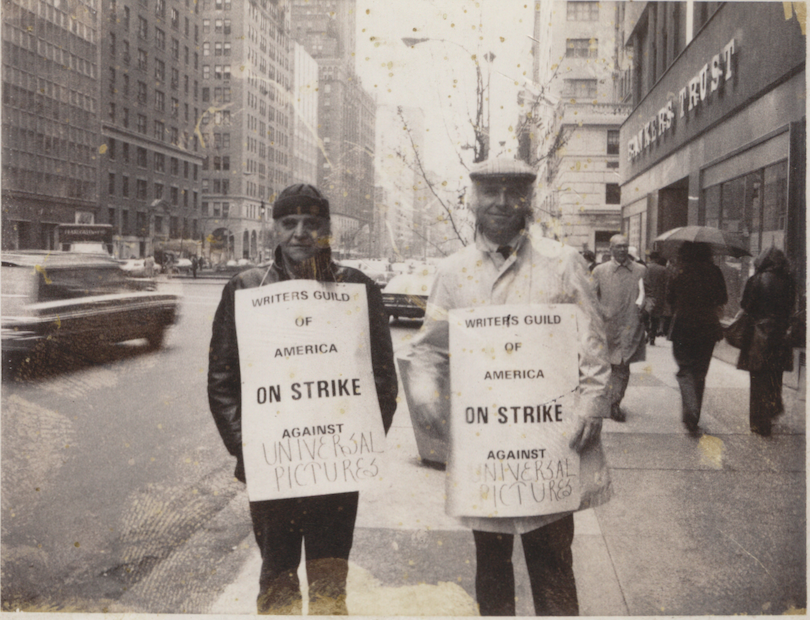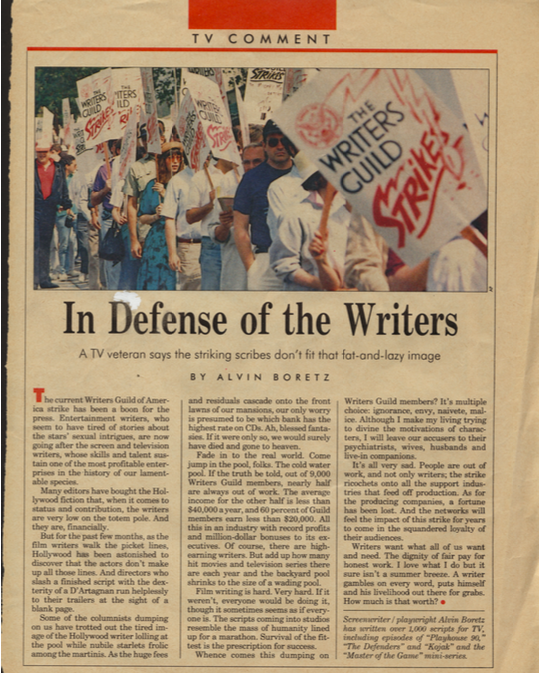Writers Guild of America

Photograph of Alvin Boretz at WGA Strike (1988)

"In Defense of Writers" (Newsday 1988)
As a longtime member of the Writers Guild of America and early contributor to the WGA-East, Boretz experienced five writers strikes of varying degrees from 1960 to 1988. The WGA-East, which was reorganized in 1951 to become separate from the WGA-West, had its own boards, executives, and council members that handled issues and concerns from writers across the Eastern Seaboard. Boretz served many positions on the council during his career, after he was first elected to the Taxes and Legislation Committee in 1957. By 1959, he was 2nd Vice-President, and from 1961-1967, he served on the WGAe Council, before being elected to the Disciplinary Committee. Boretz often worked under difficult constraints as a New York-based writer because his location was far from sets and colleagues. He formed a community on the East Coast through his involvement with the WGA-East and built a reputation that provided work opportunities that supported his decision to raise his family in New York.
Due to his heavy involvement in the WGA-East, Boretz was supportive of writers and actors during their strikes, even going so far as to double-check that his work with Radio Canadia on the script for "Swiss Family Robinson" in 1973 did not interfere with the on-going WGA Screenwriter Strike. After witnessing the 92 day long strike in 1981, in 1988, Boretz experienced the longest strike in WGA history to date. In response to the on-going strike, Boretz penned “In Defense of Writers” as an article for Newsday calling for a re-examination of the relationship between the entertainment industry and its writers. He reminds his readers that writers need to be paid fairly and treated with respect if the production companies want to keep afloat.
By 1988, Boretz was in his forty-third year of writing for various entertainment mediums and had experienced the aftermath of the industry's networks and producers failing the writers. This article for Newsday serves as a firm suggestion to the industry's leaders that supporting writers is the only clear solution.